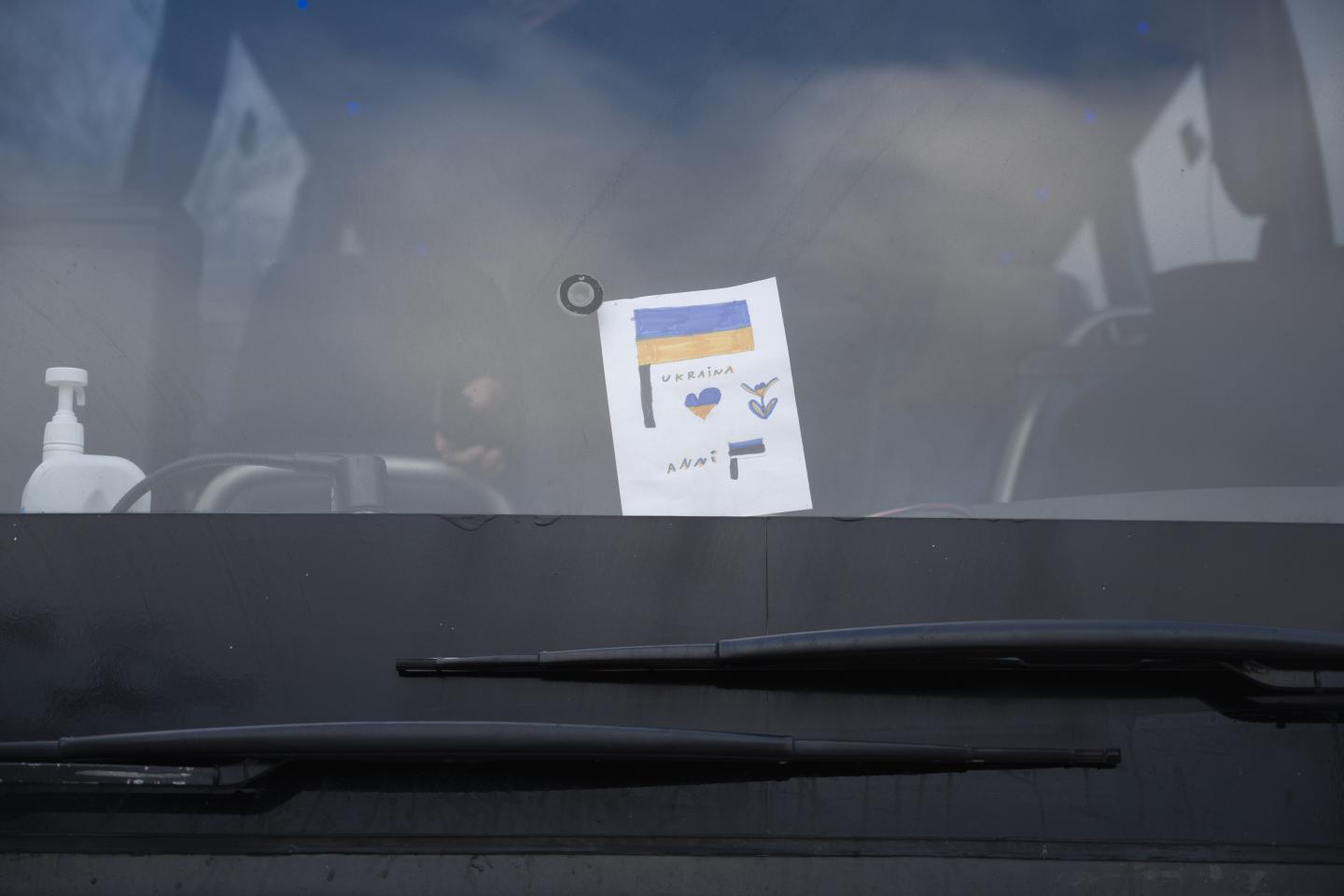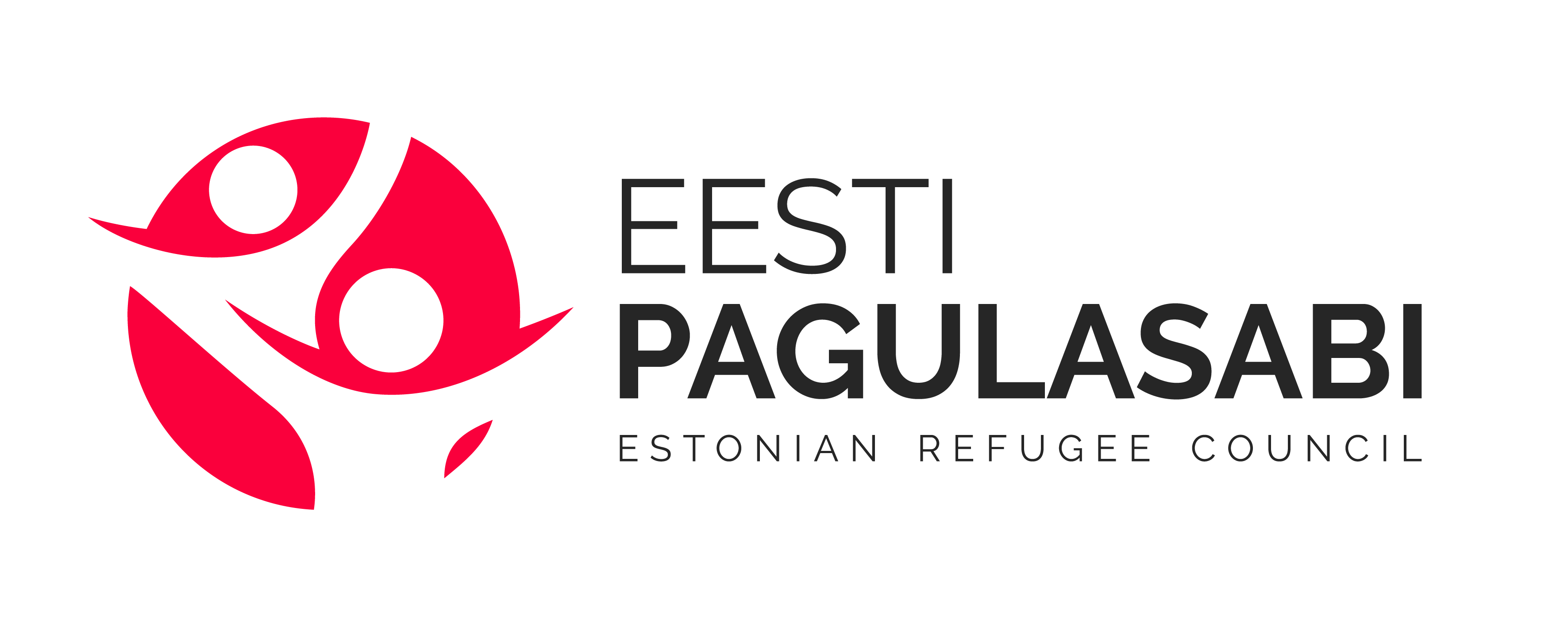
Estonian Refugee Council, Status Report as of 28 March and Important Information
Evacuations from the Ukrainian border
According to the Police and Boarder Guard Board, Estonia has received 24,608 Ukrainian citizens and their family members between 27 February and 27 March. Of these, 7,779 arrivals in Estonia have been coordinated by the Estonian Refugee Council.
The Estonian Refugee Council is the only official partner from Estonia that has permission to evacuate people from Poland, in cooperation with the Police and Border Guard Board and EXPO in Poland.
As of now, the Estonian Refugee Council will end regular evacuations from Poland by 31 March. Donations have allowed us to use buses for over a month. On 25 February, we started evacuations from Medyka as it was necessary, there was chaos at the border and possibilities for reaching larger cities were almost non-existent. At peak times we sent out 12 buses a day, now this need has diminished to 3 buses a day from Warsaw. Now the Polish state organises the transport of refugees from border crossings to Warsaw, from there it is also possible to reach Estonia with, for example, LuxExpress, Ecolines, Flixbus regular routes (the price of one seat is 40-55 euros).
We are ready to re-establish the evacuation route if necessary and if existing systems should not work.
Humanitarian aid in Ukraine
Within Ukraine, we carry out multi-purpose cash assistance, support hospitals in eastern Ukraine, and distribute blankets and other essentials to people in bomb shelters.
As of March 27, we have supported 3,595 households (more than 10,000 people). The allowance is 2220 UAH (= approximately 70 EUR) per household member. The needs of each household have been assessed on an individual basis, mainly benefiting families who have lost their home or a family member, or whose family member has been wounded in hostilities, or who live in isolated cities. The main areas of our humanitarian intervention are the Donetsk, Luhansk, Zaporizhzhia, Sumy, Kharkiv, Kiev, Zhytomyr, Mykolaiv and Chernihiv districts. According to the UN, multi-purpose cash assistance remains the most appropriate way to help people, except in some regions where markets are no longer functioning.
We also deliver medical supplies and food to hospitals, so far several hospitals in the Donetsk, Dnipropetrovsk, Mykolaiv, Zaporizhzhia and Chernihiv districts have received support. We have also sent emergency humanitarian aid in cooperation with a Ukrainian transport company to Mykolaiv, which is one of the most critical regions. We have also delivered 900 blankets and other essentials to bomb shelters in the cities of Zaporizhzhia and Kharkiv.
We coordinate all our activities with other humanitarian organizations through the UN OCHA Cluster System. Several organisations plan to launch broad multi-purpose cash assistance interventions in the coming weeks; the Estonian Refugee Council was one of the first to do so at the beginning of the war (already on 2 March).
Support of war refugees in Estonia
The counselling centre of the Estonian Refugee Council in Tallinn (Liivalaia 28) continues to advise both refugees and their relatives every working day. The helpline for Ukrainian refugees and people who help them is open: +372 5881 1311 (Monday to Sunday at 10-17); also, over email: dopomoha@pagulasabi.ee.
The Estonian Refugee Council’s database has gathered over 3,000 offers of residences from private individuals and companies and hundreds of other cooperation offers. Of these, 856 are private residential offers (apartments or houses), while the remaining offers are shared apartments (apartments or rooms shared with the owner). Of all the offers, we have already mediated 330 to households coming from Ukraine. We also proactively mediate residence offers directly to local governments through the Estonian Refugee Council, and the municipalities contact the offerors directly. Estonian Refugee Council’s volunteer teams are already working in Tallinn and Pärnu, mediating accommodation offers in public accommodation facilities so that refugees can get more permanent residences faster. A similar team will soon be launched in Tartu.
You can read about the Estonian Refugee Council’s accommodation activities here.
Donations and offers of assistance
Financial donations are currently most helpful. All our crisis activities continue to run on donations. Donations are used to provide humanitarian assistance inside of Ukraine as well as to support Ukrainians who are arriving to Estonia. Here, you can read more about why it is most sensible to provide financial support at the moment: Eero Janson: People in Ukraine need money, not things (in Estonian).
Donations can be made as follows:
- Via bank transfer: Donations of all sizes can be made to the bank account of MTÜ Eesti Pagulasabi: EE791010220258852223
- Via bank links: SEB, Swedbank, LHV and Paypal bank links can be found on the donation page and on the “For Ukraine!” campaign page
- You can also donate by calling: Tele2, Telia and Elisa customers can donate through donation phones: 9003801 (EUR 5), 9003802 (EUR 10), 9003803 (EUR 50).
More than 4.34 million euros in financial donations have been accumulated for the Estonian Refugee Council, including targeted donations for evacuations and activities within Estonia. Of this, 750,000 euros has already been spent on humanitarian aid inside Ukraine and nearly 500,000 euros on evacuations. Currently, we can support an average of 250 households a day (daily cost ca. 50,000 euros) in terms of humanitarian aid. Next week we aim to reach 300 households.
We make transfers to our Ukrainian bank account in instalments (about 200-300,000 euros) to minimise financial risks (Ukraine's banking system is fragile now and as the war escalates, the money may “get stuck” in the bank, we must also keep an eye on the fluctuation of the hryvnia, and we must not lose a lot of money due to currency rate fluctuations). We keep at least one week's advance and a crisis reserve in our Ukrainian bank account (for example, if the situation changes so that our on-site collaborators must evacuate from Zaporizhzhia).
We have been providing humanitarian aid in Ukraine for 7.5 years now, and we still have a long-term perspective. We coordinate our interventions within the UN OCHA Cluster System. We have scaled our systems and team at a fast pace to cope with and respond to the increased needs.
We collect offers of help from people and companies about accommodation and other services for war refugees through the “Offer Help!” form on our website.
***
The Estonian Refugee Council is a non-profit organisation operating in the public interest, founded in 2000. The mission of the Estonian Refugee Council is to stand for the rights and well-being of refugees and other vulnerable groups in Estonia and abroad. The Estonian Refugee Council has been providing humanitarian aid in Ukraine since 2014. The Estonian Refugee Council is a humanitarian aid organisation certified by the European Union.
